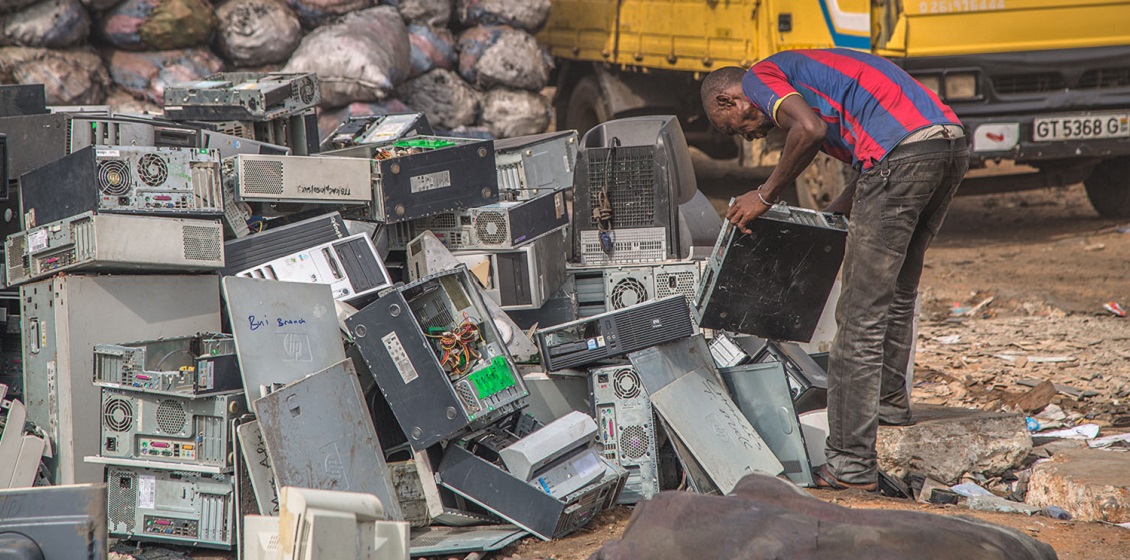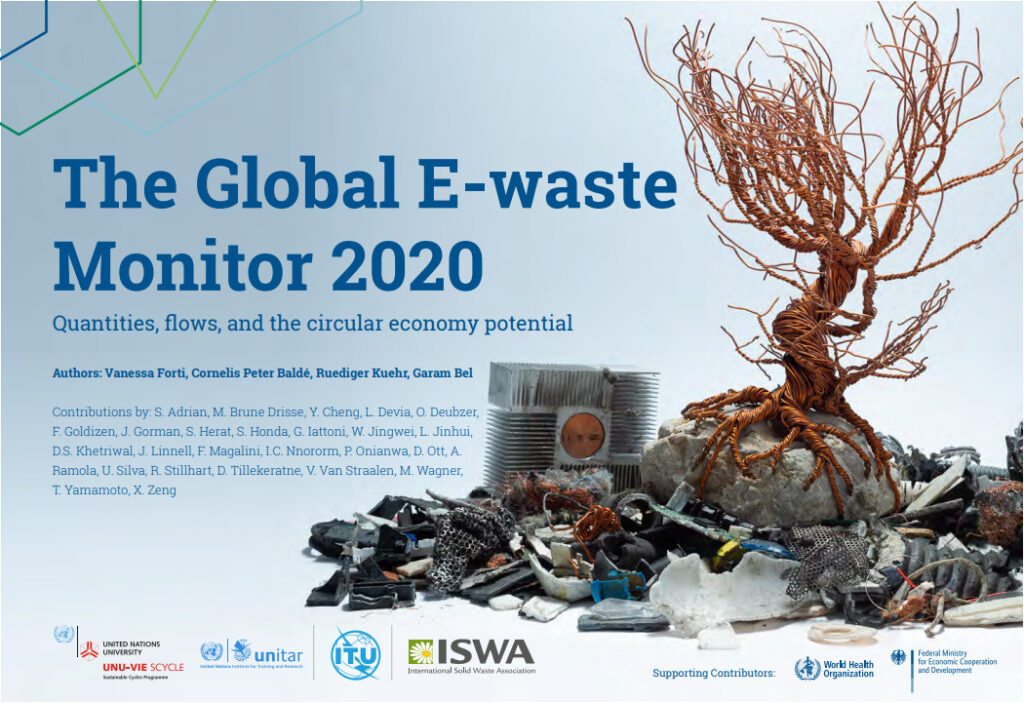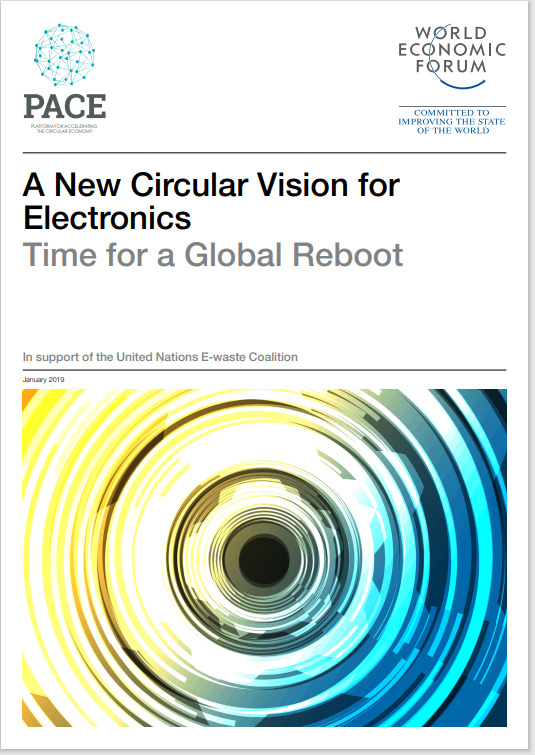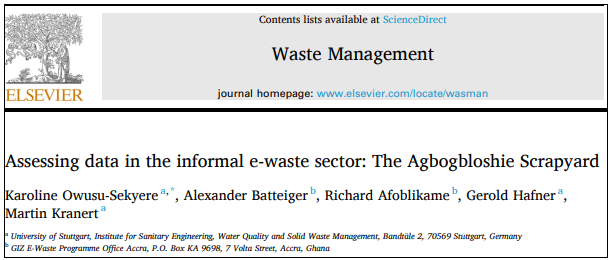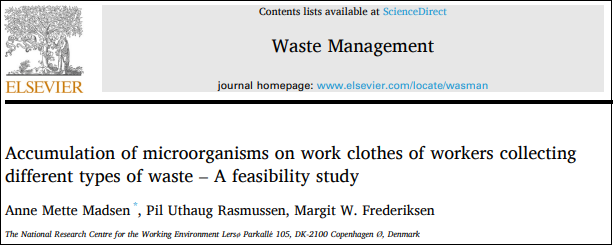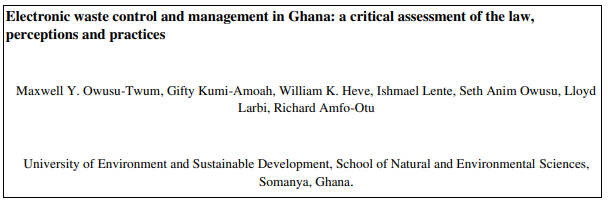According to the World Health Organization (WHO), e-waste/Waste Electrical and Electronic Equipment (WEEE) is one of the fastest-growing waste streams in the world. E-waste includes electrical or electronic equipment, along with its parts and components, that are approaching the end of their useful life. In 2021, the WEEE Forum estimated that the global generation of e-waste reached a staggering 57.4 million metric tonnes. To put it into perspective, that’s equivalent to about 4,500 Eiffel Towers or enough to cover the entire land area of Manhattan (59.13km²). This number is expected to rise to 74 million metric tonnes by 2030. The increase in e-waste can be attributed to the COVID-19 pandemic, which led to more people staying at home and relying heavily on consumer electronics.
In 2019, Asia produced the most e-waste at 24.9 million metric tonnes, followed by the Americas (13.1 million), Europe (12 million), and Africa (2.9 million). However, in terms of e-waste per person, Europe generated the highest amount with an average of 16.2 kg per capita. In contrast, Africa’s average was only 2.5 kg per person. Sadly, developing countries, especially in Africa, have become targets for dumping large amounts of e-waste illegally. For example, in 2019, the United Kingdom exported an estimated 209,222 metric tonnes of e-waste, making it the largest exporter. Research suggests that around 1.3 million metric tonnes of e-waste are unlawfully sent from Europe to developing nations, including Ghana, each year. In an attempt to override the e-waste regulatory/governance system (Basel Convention), e-waste shipped to Ghana are often declared as second-hand or charity goods, only to end up being discarded as waste on scrap/dump yards. This calls for effective e-waste regulations and legislation to address such problems.
Legislation on the export of e-waste to the Global South is regulated under the Basel Convention on the Control of Transboundary Movements of Hazardous Wastes and Their Disposal. The convention regulates the movement (exports and imports) of e-waste and hazardous wastes by ensuring its proper management and disposal in an environmentally sound manner in direct relation to Target 12.4 of SDG 12. Despite this Convention, e-waste is still exported illegally to the Global South. For instance, Ghana alone imports 150,000 metric tonnes of Electrical Electronic Equipment (EEE) annually from Europe. Sadly, approximately 30-40% of this equipment end up in dump yards. This may be attributed to the lack of proper e-waste legislation and enforcement in Africa, Latin America, and South-East Asia. In 2019, only 78 out of 195 countries had implemented e-waste-specific laws and initiatives. This raises concerns about the other 117 countries without such measures, making them vulnerable to e-waste dumping and its management challenges.
In 2020, only 13 African countries including Ghana had e-waste legislation or regulation in place. In 2016, Ghana instituted a law (Hazardous and Electronic Waste Control and Management Act 917) and regulation (Hazardous and Electronic Waste Control and Management LI 2250) to control and manage the movement and disposal of e-waste and hazardous waste in the country. Yet, the infamous Agbogbloshie dump yard has been globally known as the ‘‘graveyard’’ of Europe’s e-waste until recently when the Ghanaian government forcefully demolished the dump yard which consequently displaced about 8,000 scrap dealers. These scrap dealers are primarily migrants from northern Ghana who move to Accra (southern Ghana) in search of well-paid jobs to support their households back home in the North. In Ghana, e-waste is commonly handled by informal businesses or recyclers (scrap dealers), accompanied by poor working conditions and harmful processing techniques like dismantling, open burning, and acid digestion to extract valued metals from e-waste. Such processing techniques pose health hazards and physical injuries to scrap dealers and are also considered harmful to the environment, especially the soil. Studies confirm that soils at dump yards are highly concentrated with toxic metals like arsenic (As), cadmium (Cd), copper (Cu), chromium (Cr), lead (Pb), nickel (Ni), antimony (Sb), and zinc (Zn) which exceed international environmental quality requirements.
Frank Bimpong, a graduate student at the International Institute for Industrial Economics and Environment (IIIE) in Lund University, Sweden, sought to understand and study the relevance of Ghana’s legislation (Hazardous and Electronic Waste Control and Management, Act 917 and Hazardous and Electric Waste Control and Management, LI 2250) in the e-waste industry. Frank executed a post-assessment/evaluation of the implementation and enforcement of Act 917 in his thesis. Frank further explained his decision to study at Lund University, citing Sweden’s reputation as a leader in sustainability and his interest in environmental management and policy. He specifically mentioned the International Institute for Industrial Economics and Environment (IIIEE) at Lund University as a program that aligned with his interests. He reiterated his interest in policy, and future aspirations in the field of sustainability, focusing on policies and regulations. He associated his interests with the emerging concept of Environmental Social, and corporate Governance (ESG), which is tied to the EU taxonomy and EU Green Deal. He explained that ESG involves reporting on industries and organisations’ environmental, social, and governance impacts. He emphasized the importance of considering these three aspects of sustainability when assessing the overall impact of an organisation or industry.
In an interview with Frank, he shared his motivation, findings, and recommendations during his evaluation research. This article discusses some aspects of Ghana’s e-waste legislation. Such aspects include the mandate of the legislation, identifiable stakeholders involved in the development and implementation of the legislation, and the impact of the legislation on e-waste management in Ghana. It is important to mention that this issue of e-waste management and legislation is very much relatable to SDGs 3, 8, 11, and 12.
Ghana’s E-waste Legislation (Act 917 and LI 2250) in action
Ghana’s e-waste legislation requires all producers and importers to register with Ghana’s Environmental Protection Agency (EPA) and pay an eco-tax for all imported electronics. The eco-tax contributes to the formalisation of the e-waste sector by financing the enforcement of the legal framework for e-waste management. Also, the legislation has identified stakeholders and defined value chain actors within the e-waste sector by developing a comprehensive Extended Producer Responsibility (EPR) framework. The EPR is a widely adopted environmental policy which obliges producers to be accountable for the end-of-life processing and collection of their products. Considering the mandate of Ghana’s e-waste legislation, Frank described the legislation as being in ‘‘two-folds’’. ‘‘The Act is in two-folds, it has a management and recycling aspect. The Act introduced something called the Eco-tax which regulates the flow and management of e-waste in the country, and the Extend Producer Responsibility (EPR) which implies that the producer is responsible for recycling. This is a common practice here in Europe where you have the panting of empty cans and bottles, it is part of that principle (EPR)’’, he explained.
In addition to this, Frank highlighted the structural nature of the e-waste legislation. He affirmed that the e-waste legislation properly streamlines all activities and initiatives of stakeholders within the e-waste industry. Identified stakeholders in Frank’s assessment include the Ministry of Environment, Science, Technology, and Innovation (MESTI), EPA, German Development Cooperation (GIZ), NGOs, informal and formal recyclers, and the Accra Metropolitan Assembly (AMA). ‘‘Before the passage of the Act, there were several and different initiatives run by stakeholders in the industry with less or no coordination. For example, the construction of a $30 million e-waste recycling facility by MESTI, GIZ coming in with their development-focused e-waste projects, and some NGOs also pushing their e-waste management agenda simultaneously. So, after the Act was passed in 2016, I realised that stakeholders in the industry (e-waste) acknowledged the help it brought. In their view, the legislation streamlined what each one of them was doing. For example, they (stakeholders) have even set up a committee where they have monthly or weekly engagements with each other. Representatives of NGOs meet with formal and informal recyclers to plan and discuss issues in their industry’’ he shared.
One may ask; what has been the impact of Ghana’s e-waste legislation on the sector since its introduction in 2016? Frank’s and other studies indicate that e-waste management problems still exist despite the introduction of an e-waste legislation because of some inefficiencies associated with the implementation of the legislation due to the low publicity of the legislation. For instance, a survey in 2022 revealed that 90% of its respondents who doubled as scrap dealers were not even aware of Ghana’s e-waste legislation. The low level of public awareness continues to stall the desired outcome of the legislation by enabling some stakeholders to continue engaging in unsustainable e-waste management practices like burning which tend to have severe implications on human health and the environment.
Furthermore, Frank noted that Ghana’s e-waste legislation does not fully address the issue of E-waste management because the legislation remains incomplete and is still undergoing implementation. ‘‘The Act exists, it has been passed, but what remains is its full implementation. Currently, I can say it is in its implementation phase’’, he mentioned. He explained that the implementation phase has been divided into various steps. Some steps have been completed, such as establishing the role of a Fund Administrator responsible for managing funds generated from the eco-tax. Additional efforts are being made at the harbours and ports to set up a system that collects fees based on the type of equipment being imported. Once all the steps are completed, the implementation of the legislation shall be more comprehensive. Although the legislation exists, its effectiveness depends on the successful implementation of its various components, which are being carried out in steps. Its successful implementation shall ensure secure and healthy working environments for all workers including formal and informal recyclers (SDG 3). It shall also promote the proper and environmentally-sound management of chemicals per the Basel Convention (SDG 12).
Future research
In conclusion, Frank mentioned two potential areas for future research. Firstly, he suggested investigating the lifecycle assessment (LCA) of e-waste, particularly focusing on the recycling process in developing countries like Ghana. He mentioned that some formal recycling companies in Ghana collect e-waste but send it to their European partners for recycling instead of doing it locally. Frank suggested evaluating the environmental impact of transportation and comparing it with the benefits of local recycling.
Lastly, he suggested exploring local business models that can support the informal e-waste sector. He highlighted the importance of considering the “right to repair” concept and other business models that encourage private sector involvement and independence with minimal government intervention. Frank emphasized the need to find alternative models that shift the focus from government-driven initiatives to ones that involve the private sector more prominently.
Joel Agbesinyale holds a Master Degree in Development Studies, Lund University, Sweden Read more on E-waste in Ghana here: https://ddrn.dk/7318/


